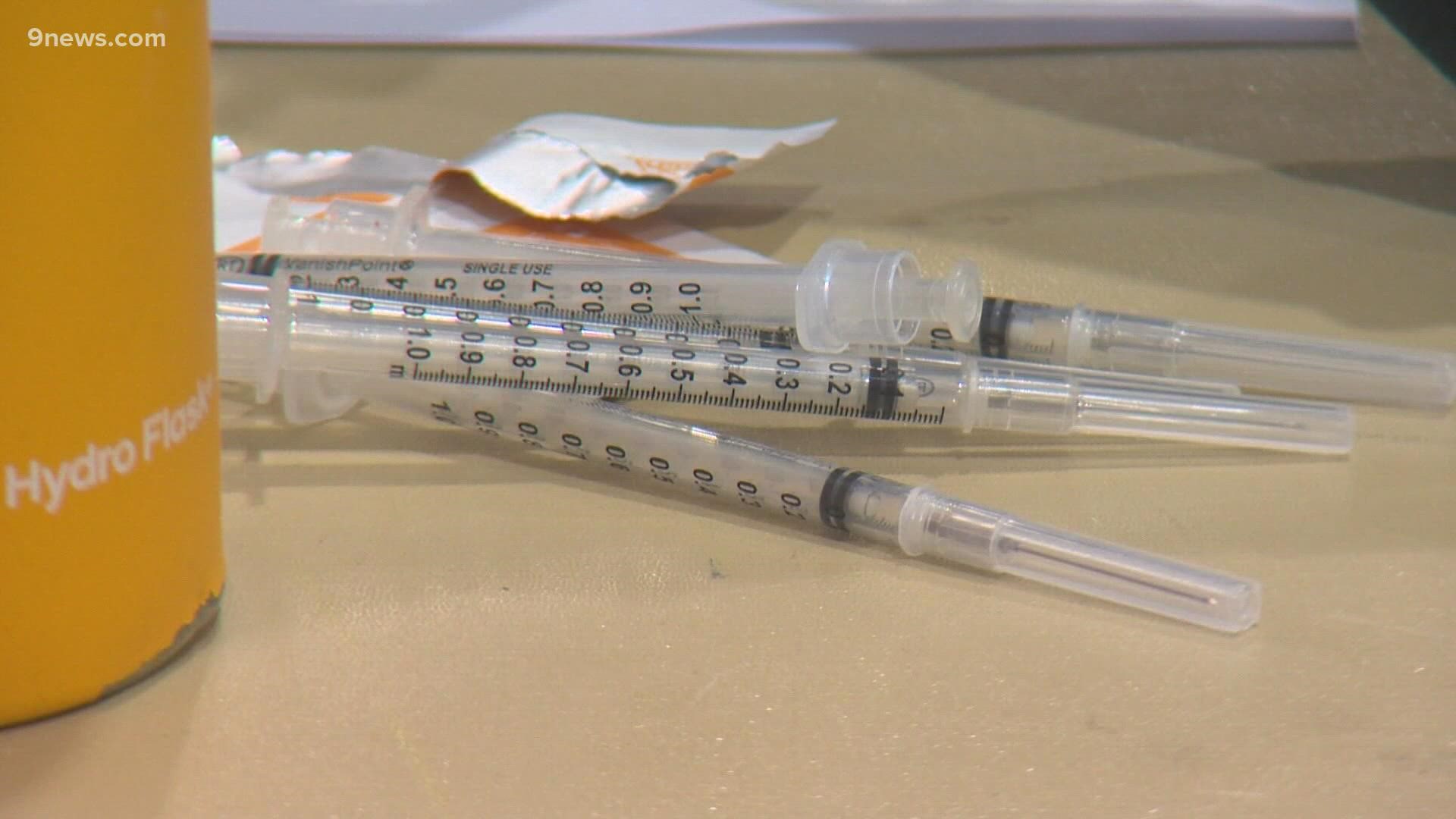DENVER — The Food and Drug Administration (FDA) is prepared to make booster shots available for all fully vaccinated people beginning the week of September 20 and starting eight months after a person's second dose.
According to the FDA, "at that time, the individuals who were fully vaccinated earliest in the vaccination rollout, including many health care providers, nursing home residents, and other seniors, will likely be eligible for a booster."
In early August, the FDA granted authorization for certain immunocompromised people to begin receiving their third doses. Most healthcare facilities have begun administering those, including smaller community clinics like Salud Family Health Centers.
To date, their Chief Operations Officer Kandi Buckland said, they have administered roughly 98,000 COVID-19 vaccines since the beginning of the vaccination process earlier this year. Now, they're preparing to administer booster shots, once the rest of the eligible population is given approval.
Buckland and Salud's Vice President of Medical Services, Dr. Pradeep Dhar, spoke to 9NEWS about the challenges they are working to overcome, in addition to what people need to know about scheduling booster shot appointments.
9NEWS: Has Salud already began administering third doses?
Dhar: Yes, we have, especially for really high-risk groups, with an organ transplant and those on immunosuppressant drugs and chemotherapy, we have already started getting the vaccination out to them.
Buckland: We began administering the third dose to the immune-compromised which has been available now for a few weeks, and we’re preparing to administer the booster doses which we hope to start the week of September 20.
What are the challenges Salud is working through to increase first, second, and third doses?
Dhar: Although we’ve been in the community for 50 years and they trust us a lot, there was still a lot of bad information, misinformation, so we had to combat that. [For third doses] the same challenges are there. We’ll have to get those people to agree to take the vaccinations. Some of them are already ready and are calling us, but we will have to do the same thing again and start sending out information.
How is Salud preparing for boosters and third doses for the rest of the eligible population?
Buckland: We are looking and trying to estimate how many doses we might need. We’re looking at our Pfizer, our Moderna, we are looking at second doses, when those were administered, so we get an idea of what our patient volume might be.
How will patients know when it's time for them to get their third dose?
Dhar: We have tools within our system and EMRs (Electronic Medical Records) through which we can identify those at-risk people, and we’re developing a process of reaching them.
Buckland: We can reach out through our electronic health record to call patients, to be able to send voice, text and email messages to alert them that we have vaccine available and how they would schedule appointments to come in and get their vaccine. Certainly our website is a great place to go, and we use social media platforms as well.
SUGGESTED VIDEOS: COVID-19 Vaccine

